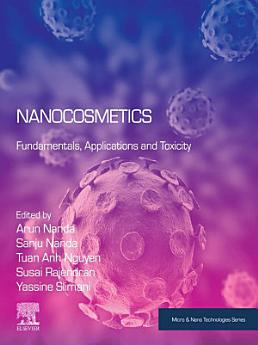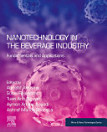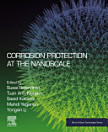Nanocosmetics: Fundamentals, Applications and Toxicity
Über dieses E-Book
Bewertungen und Rezensionen
Autoren-Profil
Arun Nanda is Professor in Pharmaceutics at Maharshi Dayanand University, India. His research lies in the area of nanopharmaceuticals.
Sanju Nanda is Professor of Pharmaceutics at Maharshi Dayanand University, India. Her research focuses on nanomaterials used for pharmaceutical applications.
Susai Rajendran is Research Director, Professor of Chemistry St. Antony’s College of Arts and Sciences For Women, India. His research is in the field of corrosion science and engineering, nanotechnology, applications of nanomaterials in corrosion protection study, and environmental studies.
Yassine Slimani is a Professor in the Department of Biophysics, at the Institute for Research and Medical Consultations, Imam Abdulrahman Bin Faisal University, Dammam, Saudi Arabia. His areas of research include materials science, chemical engineering, environmental science, biochemistry, genetics, and molecular biology.
Tuan Anh Nguyen is a Senior Principal Research Scientist at the Institute for Tropical Technology, Vietnam Academy of Science and Technology, Hanoi, Vietnam. He received a BS in physics from Hanoi University in 1992, a BS in economics from Hanoi National Economics University in 1997, and a PhD in chemistry from the Paris Diderot University, France, in 2003. He was a Visiting Scientist at Seoul National University, South Korea, in 2004, and the University of Wollongong, Australia, in 2005. He then worked as a Postdoctoral Research Associate and Research Scientist at Montana State University, United States in 2006-09. In 2012 he was appointed as the Head of the Microanalysis Department at the Institute for Tropical Technology. His research areas of interest include smart sensors, smart networks, smart hospitals, smart cities, complexiverse, and digital twins. He has edited more than 74 books for Elsevier, 12 books for CRC Press, 1 book for Springer, 1 book for RSC, and 2 books for IGI Global. He is the Editor-in-Chief of Kenkyu Journal of Nanotechnology & Nanoscience.






